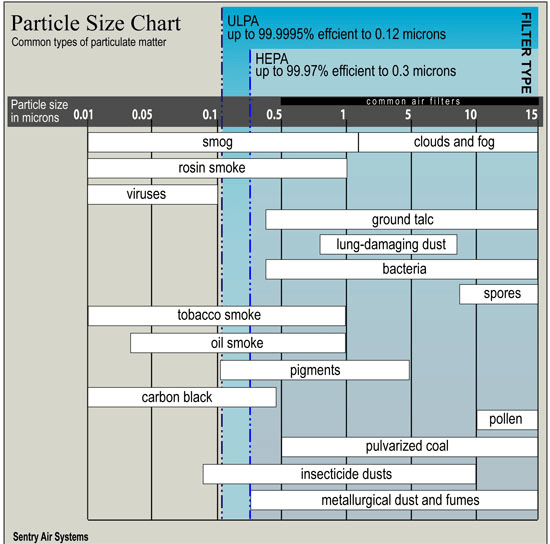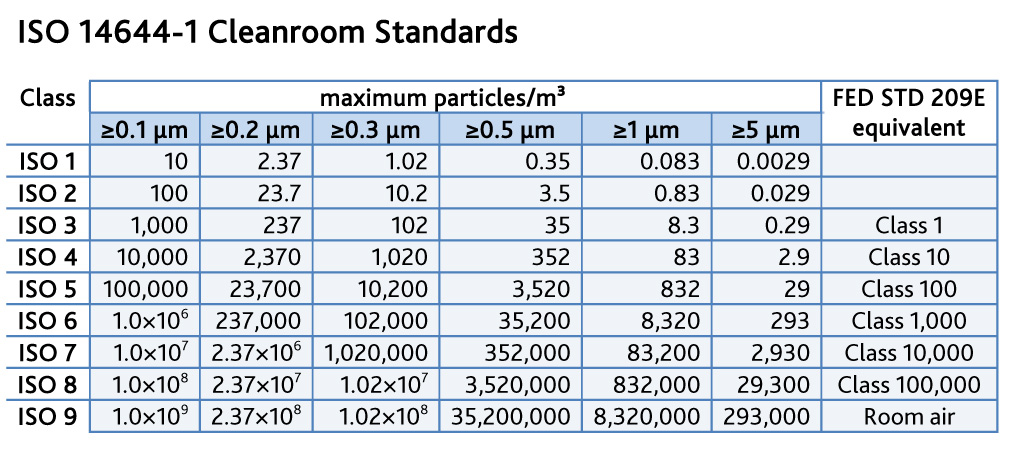What is an ULPA filter? Maybe this is what comes into your mind when you have read the title of this blog.
Well, ULPA (Ultra-Low Penetration Air) Filter is a dry extended media filter in a rigid frame, with a minimum particle-collection efficiency of 99.999%. Depending on the filter, the particle-collection efficiency can be measured at 0.3µm or at MPPS. (White, 2009)
It is different from HEPA (High Efficiency Particulate Air) filters in which HEPA filters are capable of removing 99.97% of particles with 0.3 µm diameter.
 |
| Photo credits: http://www.globalspec.com/ |
Which is better?
Before answering that question, these are the things you should know about ULPA filters, in comparison with HEPA filters.
 |
| Photo credits: http://labcrafts.com/ |
1. ULPA filters have a better filtration efficiency. ULPA filters have an efficiency of 99.999% compared to the efficiency of HEPA filters (99.99%).
1 vs 10. If 1 million spores are released on the work zone, only 1 spore will escape from ULPA filter while 10 spores will escape from HEPA filter. As you have noted above, ULPA filters exceeds HEPA filter efficiency. Therefore, it provides better operator and product protection.
2. ULPA filters provide an ISO Class 3 work zone.
What is ISO cleanroom classification?
According to Terra Universal, ISO (International Standards Organization) cleanroom classifications are rated based on how much particulates of specific sizes exist per cubic meter. ISO Class 1 is the "cleanest" cleanroom, while ISO Class 9 is the "dirtiest" cleanroom. HEPA filters provide an ISO Class 5 work zone. Thus, ULPA filters offer substantially better product protection against contaminants.
 |
| Photo credits: http://www.portafab.com/ |
 |
| Photo credits: http://www.nafahq.org/ |
3. ULPA filter media has 5% higher pressure drop. As the pressure drop increases, the electrical power consumption increases. Moreover, as the pressure drop increases, filter life decreases. If HEPA and ULPA filters have the same filter media, HEPA filter has a longer filter life.
As a solution to this problem, ULPA filters can be designed to have larger filter media to have the same filter life as HEPA.
| Photo credits: http://animations.fg-a.com/ |
4. ULPA filter replacement cost is about the same, than HEPA filter.
On average, filter replacement cost is about $300 to 400.
So which is better?
At the same filter life and replacement cost, ULPA filters reduce the chance of operator infection and product contamination.
References:
FS209E and ISO Cleanroom Standards. Terra Universal. Available from http://www.terrauniversal.com/cleanrooms/iso-classification-cleanroom-standards.php
Pressure Drop Considerations in Air Filtration. National Air Filtration Association. Available from http://www.nafahq.org/pressure-drop-considerations-in-air-filtration/
White, E. 2009. HEPA and ULPA Filters. Journal of Validation Technology. [Online] p.54

this information is very useful, thank you, i wanted to use ulpa filters but http://myairmatics.com/ sugeested me other filters, way more cheaper.
ReplyDeleteIt is imperative that you read through the website of each one to read reviews and testimonials. SubZero, Viking, Liebherr, Marvel, Thermador Refrigerator Repair in Orange County
ReplyDeleteIf you live in an area that consistently supplies water that needs further filtration, you'll be spending a lot of money on tap and pitcher filters over the years. countertop filter
ReplyDelete